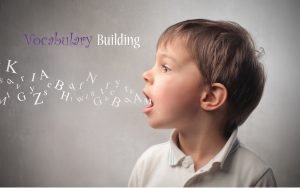Read, Read, Read! Most vocabulary words are learned from context. The more words you’re exposed to, the better vocabulary you will have. While you read, pay close attention to words you don’t know. First, try to figure out their meanings from context. Then look the words up. Read and listen to challenging material so that you’ll be exposed to many new words.
Vocabulary Learning Tip Two:
Improve your context skills. Research shows that the vast majority of words are learned from context. To improve your context skills pay close attention to how words are used. Doing a search on a word using Dialect Zone International’s Vocabulary Forum (for searching new words) will give you many examples of how that word is used in context.
Vocabulary Learning Tip Three:
Practice, practice, practice. Learning a word won’t help very much if you promptly forget it. Research shows that it takes from 10 to 20 repetitions to really make a word part of your vocabulary. It helps to write the word – both the definition and a sentence you make up using the word – perhaps on an index card that can later be reviewed. As soon as you learn a new word, start using it. Review your index cards periodically to see if you have forgotten any of your new words. Also, do a search on a word using Dialect Zone International’s Vocabulary Forum (for searching new words) to get many examples of how the word is actually used.
Vocabulary Learning Tip Four:
Make up as many associations and connections as possible. Say the word aloud to activate your auditory memory. Relate the word to words you already know.
For example, the word GARGANTUAN (very large) has a similar meaning to the words gigantic, huge, large, etc. You could make a sequence: small, medium, large, very large, GARGANTUAN.
List as many things as you can that could be considered GARGANTUAN: Godzilla, the circus fat lady, the zit on your nose, etc.
Create pictures of the word’s meaning that involve strong emotions. Think “the GARGANTUAN creature was going to rip me apart and then eat me!”
Vocabulary Learning Tip Five:
Use mnemonics ( memory tricks). For example, consider the word EGREGIOUS (extremely bad).
Think EGG REACH US – imagine we’ve made a mistake so bad that they are throwing eggs at us and a rotten EGG REACHes US.
Such funny little word pictures will help you remember what words mean, AND they are fun to make up. Also, find out which learning style suits you best. Everyone learns differently!
Vocabulary Learning Tip Six:
Get in the habit of looking up words you don’t know. If you have a dictionary program on your computer, keep it open and handy. Internet services have dictionaries and thesauruses on their tool bars. Find them and look up any word you are not absolutely sure of. Use a thesaurus when you write to find the word that fits best.
Vocabulary Learning Tip Seven:
Play with words. Play Scrabble, Boggle, and do crossword puzzles. These and other word games are available for the computer, so you are not dependent on a partner to play. Also, try out a dictionary that features built-in word games.
Vocabulary Learning Tip Eight:
Use vocabulary lists. For the serious vocabulary student, there are many books that focus on the words most commonly found in standardized tests, such as the SAT and GRE. There are also many interesting word sites on the Internet, many of which will send you a word a day by email.
Vocabulary Learning Tip Nine:
Take vocabulary tests. Playing games, such as the ones on this site, that test your knowledge will help you learn new words and also let you know how much progress you’re making. Offline sources for vocabulary tests include SAT prep books.
Click Here to Learn Some New Vocabulary:
Vocabulary Learning Tip Ten:
Get excited about words! Come to appreciate the sometimes-subtle differences between them.
Do you know the difference between something that denotes something else and something that connotes something else? If not, go look it up.
Learn to say what you really mean and discover the joys of being able to express yourself in writing. Your future can depend on how rich your vocabulary is. A good vocabulary will make a difference on the standardized tests, like the SAT and GRE, that could determine whether or where you go to college.
It will also determine the quality of your communication. So be in it for the long pull. Let building your vocabulary be a lifelong proposition. Remember: “In the beginning was the word.” Until you have a word for something, it does not exist for you. Name it, and you have made your reality richer.
[graphiq id=”h9OPhOl5uBf” title=”Vocabulary” width=”700″ height=”315″ url=”https://w.graphiq.com/w/h9OPhOl5uBf” link=”https://www.graphiq.com” link_text=”Visualization by Graphiq” ]
Did you know that if you subscribe to our website, you will receive email notifications whenever content changes or new content is added.
1. Enter your e-mail address below and click the Sign Me Up button.
2. You will receive an email asking you to confirm your intention of subscribing to our site.
3. Click the link in the email to confirm. That’s all there is to it! Note: if you wish to unsubscribe from our site, click the unsubscribe link at the bottom of the email you received.
Then indicate you no longer wish to receive our emails.
Thank You
Dialect Zone International
